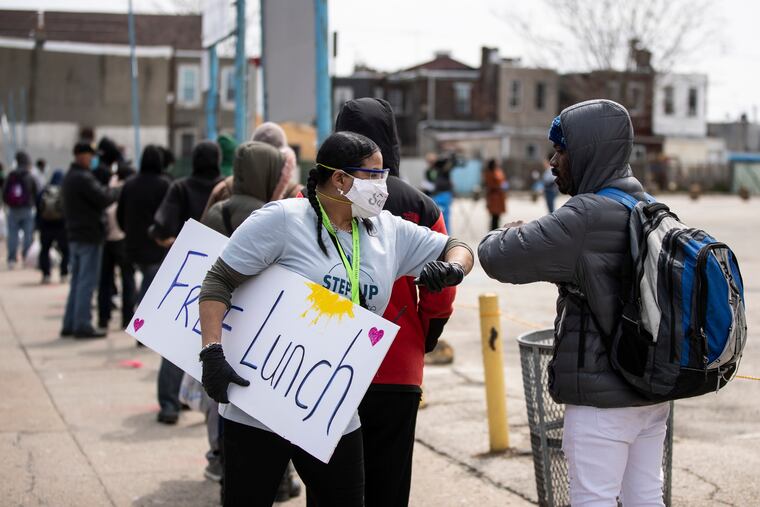Pew announces $6.8 million for Philly-area health and human services nonprofits
The grants are to organizations trying to help adults who were already struggling before the COVID-19 pandemic.

Pew Charitable Trusts on Monday announced $6.8 million in grants over three years to 38 Philadelphia-area nonprofits that serve adults struggling with homelessness, mental-health issues, extended unemployment, and other problems.
“Even before COVID-19, the Philadelphia region was already home to a large number of working-age adults striving to overcome complex challenges, including those related to behavioral health, employment and financial instability, and the ability to meet basic needs such as food and shelter,” Kristin Romens, project director of the Pew Fund for Health and Human Services in Philadelphia, said in a news release.
The three-year grants to organizations in the five-county Southeastern Pennsylvania region ranged in size from $100,000 for Delaware County Women Against Rape to $351,000 for Project Home. They are focused on three areas: helping adults with complex needs move toward independence; enabling low-skilled, unemployed, and underemployed adults to get sustainable work; and using evidence-informed approaches to improve vulnerable adults’ behavioral health outcomes.
A full list of grantees is available here.